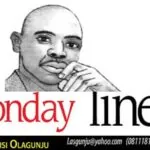LAST week, President Bola Tinubu approved the Renewed Hope Nigeria First policy which mandates all federal ministries, departments and agencies to give absolute priority to Nigerian goods, services and know-how when spending public funds. According to the administration’s officials, the ‘Nigeria First’ policy is designed to prioritise locally manufactured goods and services in all government procurements. The policy is also expected to promote domestic production, support indigenous industries, and reduce dependence on foreign products. The kernel of the policy is that every product or service that is produced in Nigeria in sufficient quantities should not be imported from foreign countries. In other words, Nigeria comes first in all procurement processes, and no foreign goods or services already produced locally will be procured without a clear and justified reason. This is a progressive policy that promises to help in building local capacity and shielding the domestic economy from global shocks if properly implemented across board without discrimination. This seemingly self-centred policy is fast becoming the in-thing globally. Even the leader of the bastion of liberal democracy and the most prosperous capitalist economy in the world, Donald J. Trump, is currently treading the same path, albeit with needless noise.
It is instructive that the Nigeria First policy does not place an unreasonable blanket ban on the procurement of foreign products or services as they can still be procured with a written justification and waiver from the Bureau of Public Procurement (BBP), which is obligated to ensure that local options are considered first. Also, clauses that promote technology transfer, local production partnerships, or skill development initiatives must now be included in foreign procurement contracts. And as if to underscore the seriousness of the government about implementing the policy, all MDAs have been directed to immediately review and revise their procurement plans to align with the new policy. It is also gladdening to know that the Federal Government plans to lead the charge by investing directly in Nigerian industries, adjusting spending habits, and using its procurement power to support homegrown growth.
It is important to state that this policy is not novel. There had been variants of it by different administrations and regimes in the country. Before now, for instance, there was Buy Nigeria. It is axiomatic that looking inwards will save foreign exchange as Nigerians purchase what they need locally. It can also encourage local investors to raise production because of the likelihood of increased patronage. The rewards for patronising locally produced goods and services are literally limitless. However, the issue is that Nigerians are used to such grandiose, highfalutin statements on policy initiatives. It is sadly the case that government officials say one thing and do another. For instance, not too long ago, the government granted a waiver on food imports but did not implement it. The veritable challenge has always been lack of proper implementation and sustainability of policies that are otherwise laudable.
Besides the legendary lack of discipline and political will, there is also the issue of ineffectively manned borders. The borders are still porous and foreign goods easily enter into Nigeria, thus threatening local production. What guarantee is there that the haemorrhage will stop with this new policy? Or is there any plan to dramatically institute an effective border control mechanism to stem the influx of foreign goods on which duties are not paid into the country? How do you achieve fiscal objectives with porous borders? There is no gainsaying the fact that if the control of the country’s borders remains suboptimal, there will be price war between local manufacturers and those illegally bringing in foreign goods into the country. Nonetheless, a significant enabler of the revived policy will be the government leading by example. The government must lead the way by bringing concrete expression to its inspiring pronouncements on the policy. For instance, the three branches of government cannot continue to purchase choice automobiles from Europe and Asia, neglecting Nigerian automakers, and expect the Nigeria First policy to achieve its aims. It will just remain an ineffective mantra. Specifically, and in clear terms, Nigeria First should also mean that the president and his team use Nigerian hospitals when they are ill, except when there is no expertise for treating such diseases in Nigeria. It would also mean vacationing in Nigeria, not turning European countries to their alternate homes.
The bottom line is that the government should be exemplary in its implementation of the Nigeria First policy, if it is to have the moral ground to enforce compliance. For it is bound to experience pushbacks from vested interests, especially in the private sector, who are currently profiteering from the unbridled importation of foreign goods. Already, businessmen in the downstream sector of the oil and gas industry are cautioning the Federal Government against abruptly stopping fuel importation. They argue that the country’s refining capacity is still insufficient to meet demand and that a sudden ban could lead to shortages and price increases, which could potentially worsen inflation. They also emphasise the need for a level playing field for all players in the market, including local refiners, importers, and retailers, to ensure availability and affordability of fuel. We urge that the claims of the fuel importers be scrutinised. Industry regulators must demonstrate a high level of sincerity and patriotism in order for the Nigeria First Policy to succeed in the oil and gas sector. Why should the government yield a level playing field to importers and manufacturers of goods that are being produced locally? Indeed, the success of the Nigeria First policy may be dependent on how firm and resolute the government is about its implementation. And it is important that the government brace up to the challenge of strong resistance from importers in all sectors of the economy.
There was a time in Nigeria when the official car of every eligible public servant was a Peugeot 504. The policy greatly enhanced the profitability and survival of the Peugeot assembly plant in Kaduna, Kaduna State, but the policy was abandoned when the regime that introduced it left office. And as expected, the jettisoning of the policy ultimately resulted in a significant decline in the fortunes of the automaker. It is hoped that the current policy initiative will be properly instituted in a way that it outlives its author through quasi-legislation by way of an executive order which the Minister of Information and National Orientation, Mohammed Idris, promised would soon be in place. The significance of the Nigeria First policy can hardly be overemphasised. From instilling confidence in Nigerian products and reducing pressure on the exchange rate to fostering a culture of self-belief and boosting national pride through local enterprise, the protectionist policy is really promising. However, we urge disciplined, sincere, painstaking and sustainable implementation, because that is the only guarantee that the country will access its multiple benefits.
READ ALSO: Tinubu approves mandatory use of NIN authentication in MDAs






